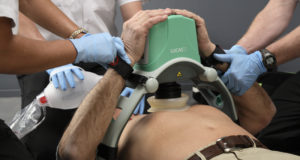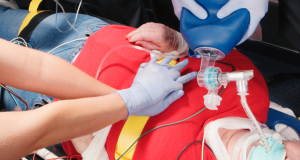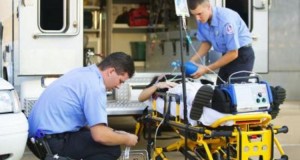Today, a coalition of states have announced that they have plans to remove the AEMT protocols in their next update in 2015. In their statement, the coalition’s leader, Massachusetts OEMS Director Bennie Rodriguez, stated “Here in Massachusetts, we do not utilize Intermediates/Advance EMTs. We are here to help guide the other states in their elimination of this certification level.” When questioned about their reasoning for eliminating the protocols for the Intermediate/AEMT level, Rodriquez answered, “It’s a grey area when it comes to this license level. They think they can handle certain ALS transfers or 911 calls, but in the end, they just end up having to call for a paramedic anyways. Sure, they can start IVs and give a couple meds… but other than that, what use are they?”
Maine EMS representative Hamilton Porter had similar views on the subject matter. “Although it is nice having this bridge certification between the EMT and Medic in the rural settings, we have had increasing issues where the Intermediate/AEMT thi nk they can operate at the Paramedic level,” stated Porter. “We’ve had multiple cases where the Intermediate or AEMT utilize the first round medications that are available to them, for other indications OTHER than cardiac arrest,” said a concerned Porter.
nk they can operate at the Paramedic level,” stated Porter. “We’ve had multiple cases where the Intermediate or AEMT utilize the first round medications that are available to them, for other indications OTHER than cardiac arrest,” said a concerned Porter.
“I see this all the time with these ambulance drivers. They come in and they act like they’re a paramedic and think they can do everything a medic can. To be honest, if they want want to work like a medic, they need to just go to school and get it,” stated Karen Allen, an Emergency Room Nurse.
“Because of the increased risks of having intermediates work at their level of care, our insurance rates increase. Because of this, we have decided not to utilize intermediates,” stated a field supervisor of a New England company who wishes to remain anonymous. “We’ll hire them, but they work at the level of an EMT-Basic. They do not have access to monitors, intermediate medications, etc. They are strictly basics here at our company,” he stated.
According to Mr. Porter, we can expect to see rough drafts of the new protocols sometime in the Spring of 2014. With the new protocols, you will see that intermediates will no longer have standing orders for any intermediate level of care. However, Mr. Porter did state that there may still be protocols for Venous Access, and may have access to medications while working with a Paramedic.
Stay tuned for further developments.
 Call the Cops The 27th Most Trusted Site in Public Safety
Call the Cops The 27th Most Trusted Site in Public Safety





